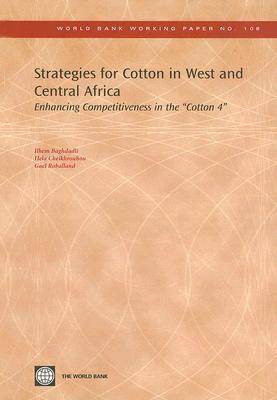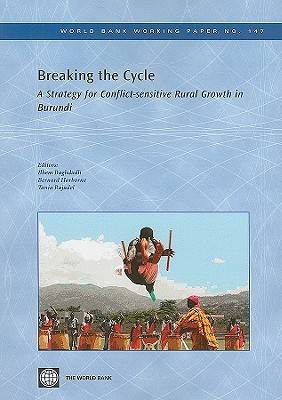World Bank Working Paper
2 total works
Strategies for Cotton in West and Central Africa
by Ilhem Baghdadli and Hela Cheikhrouhou
Published 30 August 2007
Based on comprehensive empirical studies, the paper identifies key reforms and defines strategies to enhance the competitiveness of the cotton sector in West and Central Africa. Lessons learned from the 1990s suggest that transferring public property to private enterprises is not enough, by itself, to put the sector back on a sustainable path.The cotton sector in most West and Central African countries is critical in terms of its contribution to GDP and exports as well as poverty reduction. Until recently, the cotton sector was characterized by a vertically integrated monopolistic structure, whereby all transactions in the chain including, ginning, transportation and input supply were handled by the State Owned cotton company. However during the late 1990s, a number of internal and external factors created the need to reassess the structure of the cotton industries in the region.This assessment revealed that, in this new context, vertically integrated monopolies were too costly to ensure vertical coordination of the cotton supply chain. Areas of improvement are associated with the following three targets: increasing yields to produce larger volumes, reducing cost and increasing the reliability of grading, and enhancing sales revenues. The paper explains how these targets can be effectively pursued through sector reforms.
Burundi, situated in the heart of the Great Lakes Region, is one of the poorest nations in the world. Beset by coups d'etats, presidential assassinations and genocide, the country has been caught in a cycle of violence and under-development whereby brief periods of peace have been followed by further state repression and armed conflict. The 2000 Arusha peace accords, the Pretoria agreement of late 2003, the peaceful elections of 2005, and the recent Dar es Salaam peace agreement with the Forces Nationales de Liberation have ushered in a period of relative stability. This fragile political process, however, has not been matched by a parallel rebound in economic growth that has been observed in post-conflict African countries and is a precondition for long-lasting peace. This work aims to identify areas in Burundi's rural economy with the greatest immediate potential to stimulate growth and consolidate peace over the next years. The short-term focus will be on the rural economy. It is vital however that the Government of Burundi and its partners address other critical areas in the medium term to sustain growth. The industrial and service sectors are of particular significance, as they need to absorb a burgeoning, youthful and increasingly urbanized generation. The first challenge is to take stock of international best practices and Burundian history, and develop a sound agricultural base as the critical foundation for sustainable growth. Our work identifies policy reforms and investments with potential to boost food supply and strengthen export crop competitiveness, thereby expanding rural growth.

